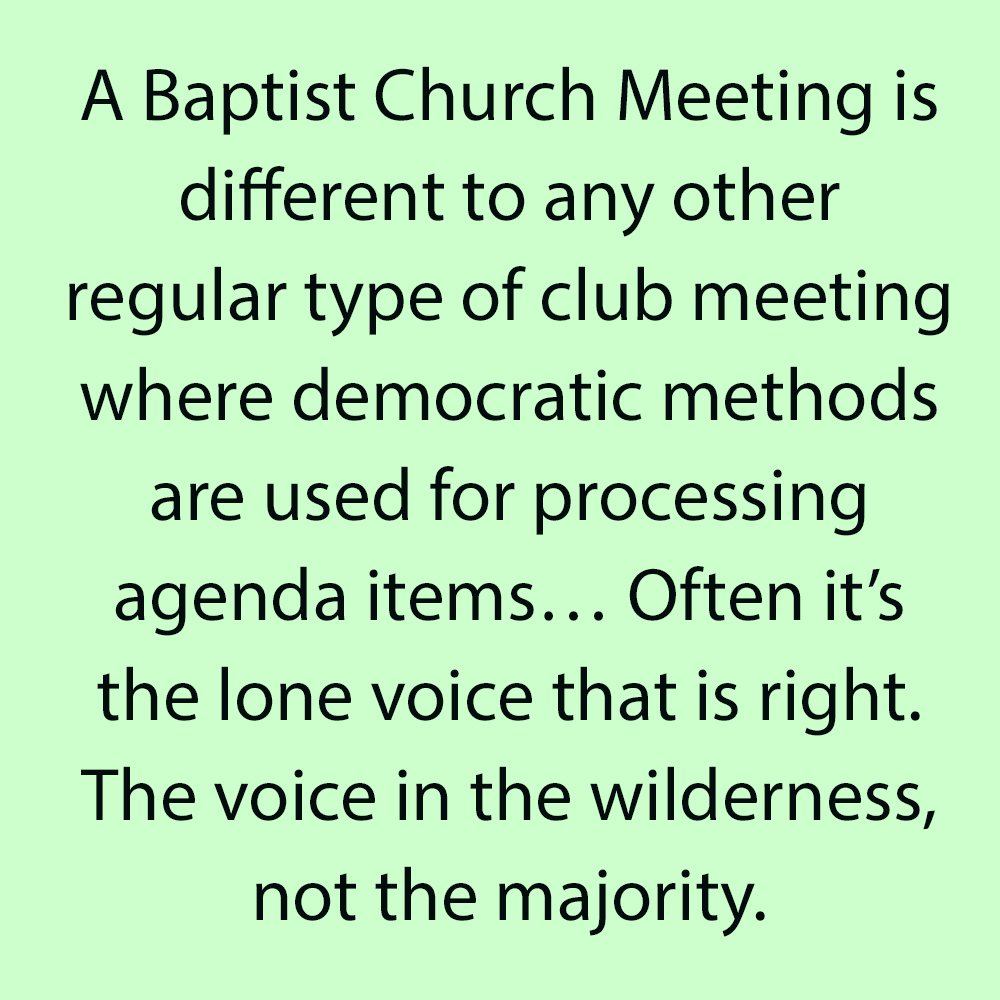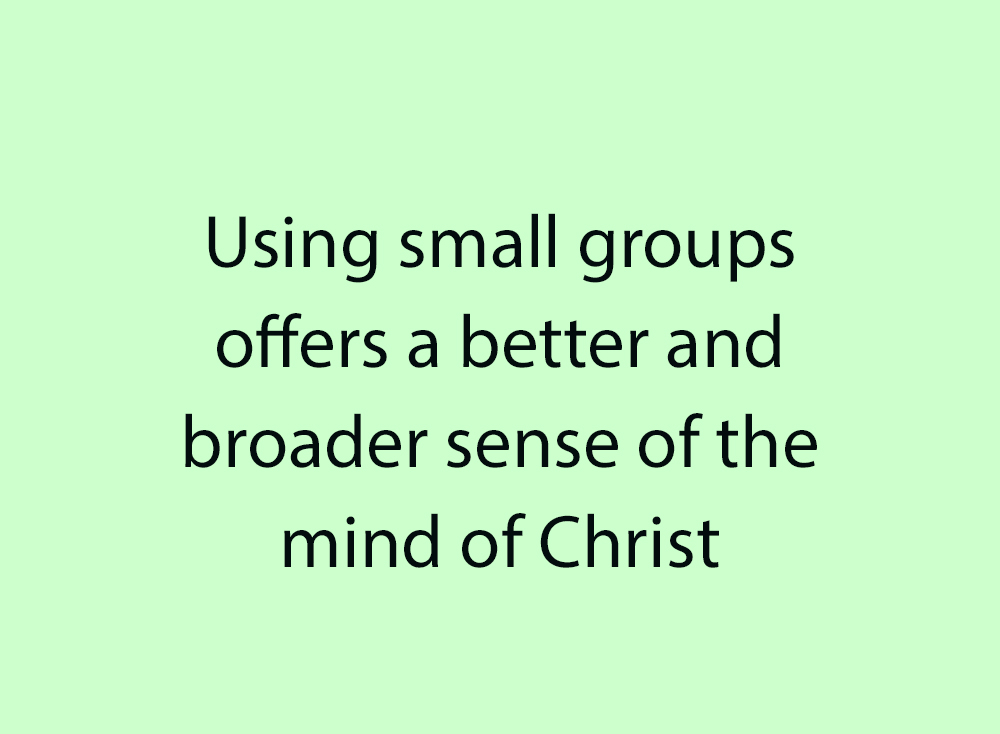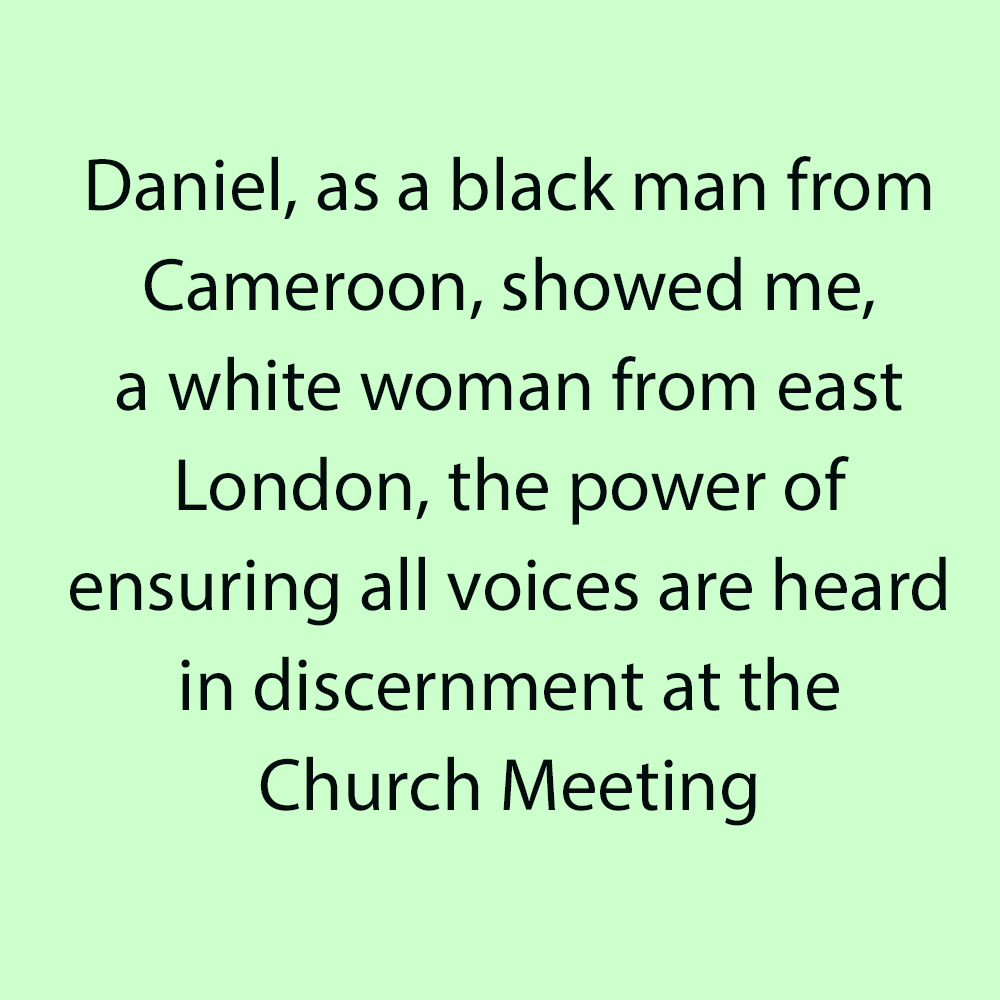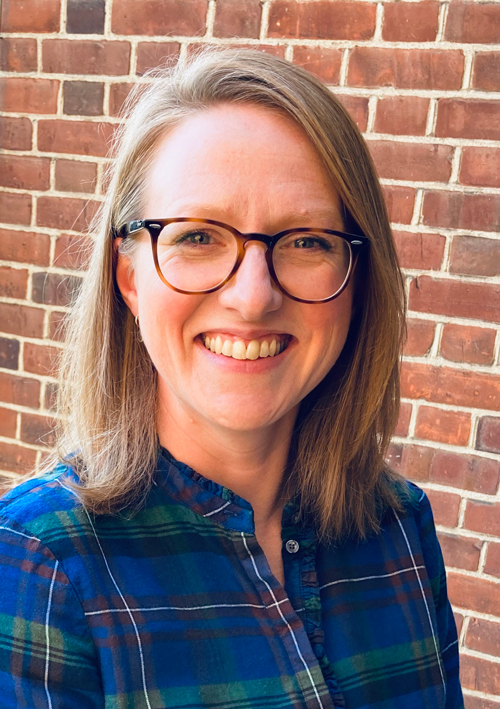
This Body Life
A Baptist church meeting can be special, beautiful even, but we need to understand why. By Ruth Moriarty
This article is part of a broader qualitative study of four local Baptist churches on the Church Meeting for Ruth’s doctorate at the University of Chester. The voices included in her research are all pseudonyms and each church has been given the name of a notable female minister to celebrate the centenary of women ministers ordained in the Baptist Union.
Baptist Church Meeting should be understood to be a place of discernment through the ‘body life’ of the members, where listening to others is valued and space for the prophetic lone voice is assured. Nell at Hedger Baptist stated: “It’s this body life which is supposed to be the Baptist thing.”
The phrase ‘body life’ here reflects a Baptist belief that all Christians, and therefore members, are understood to be part of body of Christ (1 Corinthians 12:27) and the priesthood of all believers (1 Peter 2:5). Each person attending a Baptist church is encouraged to become a member as a reflection of this theological principle. Members can then together discern the mind of Christ as his body. As Stanley Grenz states: ’the active role of all [is] in the corporate search for the will of Christ for the church’.
1 Full attendance and full participation of the members of the body of Christ is vital to hear the fullness of God’s Spirit speaking.

Integral to a Church Meeting is an intention to listen to the full body of members as Matthew, minister at Jarman Baptist stated: “I’ve tried to talk about the essence of a Church Meeting as being about the responsibility to listen rather than the right to speak.” Attentive listening to all voices enables the prophetic to be heard. Nell said: “Often it’s the lone voice that is right. The voice in the wilderness that is right, not the majority.” A Church Meeting that enables listening to all members and space for the prophetic to be heard is part of the particular practice of a discernment at a Baptist Church Meeting; it’s a practice different to any other regular type of club meeting where democratic methods are used for processing agenda items.
A critical issue in this discrepancy over the role of the Church Meeting is identified as the influence and tradition of people from other denominations now part of Baptist churches. Regarding regular attendees at her church Nell states: “A lot don’t come from a Baptist tradition.” Here a pattern of church attendance is noted where denominational preferences have waned, no longer do those raised in the Baptist church always seek to attend a Baptist church. Further, as Desmond identified, Hedger Baptist Church’s congregation is “a mixture of folks, we’ve got Catholic, Anglican, strong Methodists, Pentecostal.” The consequence of this mixture of Christian attendees at church is that ‘certain people are more willing to come and receive than to contribute to the direction’ of the church and in particular fail to engage with congregational governance at the Church Meeting.
Stephen at Gates Baptist explains the issue further: “They don’t know too much about it and we’re not doing an awful lot to help them to understand it, [therefore] it becomes a democracy.” Where a Baptist church fails to offer a clear explanation of discernment practice and the value of the Church Meeting in a Baptist setting, new attendees of the church are unable to engage in a ‘body life’. Too often the assumption expressed in this project was that new attendees would appreciate the importance of the Church Meeting by osmosis. New attendees therefore either never become members, become members but do not speak, or become members and understand the tools of democracy such as voting as to be of the highest importance.

Where can a liberative ‘body life’ model of a Church Meeting be found? A Church Meeting can be a place where discerning the mind of Christ is a liberating experience when all members are valued equally in Christ and heard through contributions that are deliberately sought. Daniel is a middle-aged engineer and deacon at Gates Baptist Church. He reflected on the use of small groups for discussing pastoral care: “It was beautiful – so many contributions. So when we break people up in groups like that and get almost everyone’s view and then we pray together, that is when we discern the mind of Christ together.” The use of small groups with a good facilitator and feedback process is beneficial as it opens the discernment process beyond powerful members and draws out those who are unsure of speaking in front of a large audience. Using small groups offers a better and broader sense of the mind of Christ.

I was struck by Daniel’s choice of language; ‘beautiful’ was not a common adjective used to describe the Church Meeting in the project. Through the use of small groups, members were heard into speech as Nelle Morton states: ‘Hearing in this sense can break through political and social structures to be heard by the disinherited’.
2 Daniel, as a black man from Cameroon, showed me, a white woman from east London, the power of ensuring all voices are heard in discernment at the Church Meeting. Our body life as Baptists ought to be shared widely for it is liberating to hear all discerning what the Spirit says - and it is beautiful.
The Church Meeting and the era of Covid 19
Lockdown life for the Church Meeting has been challenging. Many churches have encountered the digital divide, where members have no access to computers or WIFI at home which has meant streaming platforms (like Zoom) have been impossible to use for services or a Church Meeting. For these churches, communal discernment is limited to in-person Church Meetings which in itself limits attendees to low-risk members.
Here the matter of what we discuss and discern at a Church Meeting is usefully refined, where only the most critical items are considered. This kind of agenda control can be helpful too across church life.
Meanwhile for churches that have a significant number of members who are able to regularly access streaming platforms, the format itself enforces listening to each other.
By only being able to listen to one speaker at a time, each member is heard into speech. Connecting digitally enables a younger and broader demographic in these churches to attend as, for example, parents can attend without need for a babysitter. Making good use of breakout rooms can attract a broader range of voices to participate which is beneficial to hearing the Spirit speak. |
Click here to
download a pdf version of this article.
 Ruth Moriarty
Ruth Moriarty is a Baptist minister at Christ Church New Southgate & Friern Barnet in north London, DProf student at the University of Chester and editor of Baptists Together publication
Becoming a Mother in Ministry.
This article formed part of a
Baptist Historical Society webinar.
1 Stanley Grenz (2002).
The Baptist Congregation (page 57). Vancouver, Canada: Regent College Publishing
2 Nelle Morton (1985).
The Journey is Home (page 128). Boston, USA: Beacon Press.
Photos: Shoeib Abolhassani on unsplash.com | shutterstock.com